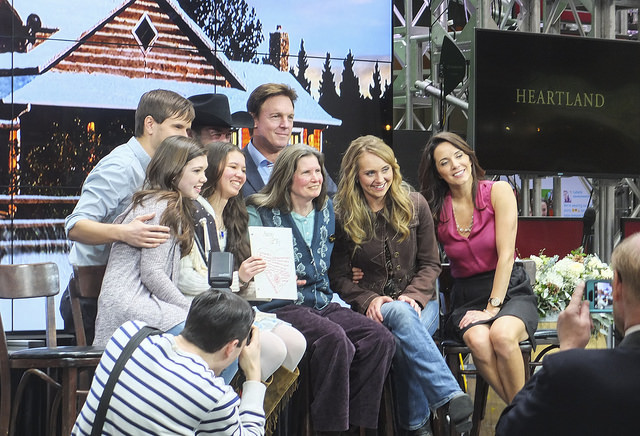LIFESTYLE
Whose Heartland?: The politics of place in a rural–urban interface

Abstract
This article advances a conceptualization of the rural–urban interface that is centred on a historically and spatially informed politics of place situated within local–global connections. The research is a case study of an inter-municipal development plan called Alberta’s Industrial Heartland. Located near the City of Edmonton, in Alberta, Canada, the study area has been characterized by tremendous social, cultural, and economic shifts over the past century, from agriculture, to country residential in-migration, to intensive industrial development in response to the increasing importance of Alberta on the global energy market. A series of interviews conducted with residents, political officials, and other stakeholders documents how parallel, yet contested definitions of the ‘Heartland’ underpinned a ‘politics of place’ over land use change at the rural–urban interface.
Dreams of the Eurasian Heartland: The Reemergence of Geopolitics
Popularized at the beginning of the twentieth century by an eccentric British geographer, Sir Halford Mackinder, geopolitics posits that the earth will forever be divided into two naturally antagonistic spheres: land and sea. In this model, the natural repository for global land power is the Eurasian “heartland” — the territory of the former Russian empire. Whoever controls the heartland, wrote Mackinder, will forever seek to dominate the Eurasian landmass and ultimately the world.
Dreams of the Eurasian Heartland: The Reemergence of Geopolitics
Popularized at the beginning of the twentieth century by an eccentric British geographer, Sir Halford Mackinder, geopolitics posits that the earth will forever be divided into two naturally antagonistic spheres: land and sea. In this model, the natural repository for global land power is the Eurasian “heartland” — the territory of the former Russian empire. Whoever controls the heartland, wrote Mackinder, will forever seek to dominate the Eurasian landmass and ultimately the world.
Heartland
Heartland is a family drama that airs on CBC TV on Sundays at 7:00 p.m. Based on novels published by Working Partners under the name Lauren Brooke, it premiered in 2007 and is the longest-running one-hour drama in Canadian history. Set on a family ranch called Heartland, the Alberta-shot series follows Amy Fleming’s (Amber Marshall) relationships with her family, with ranch hand Ty Borden (Graham Wardle) and her special abilities as a horse whisperer. Winner of five Directors Guild of Canada Awards for best family television series, Heartland has averaged more than 1 million viewers per episode and is broadcast in more than 100 countries.
LIFESTYLE
Choosing the Perfect Costume Wig with A Guide to Natural Hair Wigs

When it comes to creating the perfect costume or theatrical look, a wig can play a transformative role. Whether you’re dressing up for a special event, a theatrical performance, or simply for fun, choosing the right wig is crucial. In Australia, the popularity of natural hair wigs has been on the rise, offering a realistic and versatile option for those seeking authenticity in their appearance.
Understanding Your Needs
Before diving into the world of wig shopping, it’s essential to understand your specific needs. Consider the character or style you’re aiming to portray. Are you going for a historical figure, a fantasy character, or a modern celebrity look? Knowing the details of your desired style will guide you in choosing the right type of natural hair wig.
Material Matters
Wigs come in various materials, each offering unique benefits. Natural hair wigs, often made from human hair, are prised for their realistic appearance and versatility. In Australia, where the climate can vary, natural hair wigs are preferred for their breathability and comfort. Synthetic wigs, while more affordable, may lack the natural look and feel that human hair wigs provide.
Consider Your Budget
While natural hair wigs are known for their authenticity, they often come with a higher price tag. Before embarking on your wig-shopping journey, set a budget that aligns with your financial comfort. Keep in mind that investing in a quality natural hair wig can pay off in the long run, as they tend to be more durable and offer a more authentic look.
Choose the Right Style and Color
Selecting the perfect style and color is crucial to achieving the desired look. Natural hair wigs in Australia come in a variety of styles, from straight to curly, short to long. Consider the character or look you’re going for, as well as your personal style preferences. Additionally, pay attention to the color – whether you’re matching your natural hair or trying something bold, finding the right shade is key to a convincing appearance.
Focus on Fit and Comfort
Wearing a wig for an extended period can become uncomfortable if the fit is not right. Natural hair wigs are often adjustable, allowing for a customised fit. Look for wigs with adjustable straps or elastic bands to ensure a snug and comfortable fit. Prioritise comfort, especially if you plan to wear the wig for an extended period during events or performances.
Research Reputable Suppliers
When it comes to purchasing natural hair wigs in Australia, it’s crucial to buy from reputable suppliers. Research online reviews, seek recommendations from friends or fellow performers, and ensure the supplier has a history of providing quality wigs. Reputable suppliers often offer a range of styles, colors, and price points, allowing you to find the perfect wig within your budget.
Care and Maintenance
Once you’ve chosen the perfect natural hair wig, proper care is essential to ensure its longevity. Invest in wig care products and follow the recommended care instructions provided by the supplier. Natural hair wigs can be styled and treated similarly to your own hair, but they require gentle care to maintain their quality.
Conclusion:
Choosing the perfect costume wigs , especially natural hair wigs in Australia, involves careful consideration of your needs, budget, and style preferences. Embrace the transformative power of a high-quality wig, allowing you to embody your chosen character or style with confidence. By understanding the materials, fit, and care requirements, you’ll be well on your way to selecting the perfect natural hair wig for your next adventure in the world of costumes and theatrical performances.
LIFESTYLE
Sleep comfortably in pyjamas

Pyjamas are often more comfortable for sleeping than other sleepwear.
Womens pyjama sets are more comfortable than sleeping in a T-shirt or shorts. This is because they have sleeves and legs, which provide warmth and protection from the cold air outside. They also help keep you warm when you’re as little as wearing them around your house at night before bedtime!
Why should you wear pyjamas at home?
Here is a list of reasons why you should consider purchasing pyjamas:
Pyjamas are an excellent option for sleepwear.
Women’s pyjama sets are a good choice for sleepwear. They’re comfortable, easy to wear and they look good too.
Pyjamas are an excellent way to prepare for bed in the morning, whether you’re going on vacation or want something that feels more relaxed than pyjamas. And if you’re planning on lounging around the house all day long, pyjamas can be dressed up with any number of accessories—like tights, socks, and shoes—to create an outfit that works well with whatever else is going on in your closet at home (and maybe even outside).
Some people say that the colours of your pyjamas can change your mood.
Some people say that the colours of your pyjamas can change your mood. For example, if you are in a bad mood and wear dark blue or black pyjamas, they will generate negative energy and worsen your mood. This is because these colours are associated with sadness, depression, and loneliness; therefore, wearing them will increase your body’s stress, which may cause headaches or insomnia.
However, other people claim that wearing bright-coloured clothing makes them feel happier than others who wear duller colours such as grey or navy blue because these colours seem more promising than darker shades which can give off an impression of being more relaxed than their surroundings (i.e., it’s easier to see through).
Some women find it empowering to feel confident in wearing pyjamas as sleepwear.
They feel more relaxed, comfortable, and at ease with their skin when wearing them.
Pyjamas are essential to a woman’s wardrobe; they can be worn during any year’s season. They can be used as bedwear or loungewear, depending on how you want to use them and where you choose to store them when not in use.
Pyjamas are a convenient and comfortable choice as sleepwear.
Pyjamas are a good choice for sleepwear. They’re comfortable and practical, easy to take care of, easy to wear and clean—and they can be worn with anything from t-shirts to blouses.
Pyjamas had come a long way since they were only for pyjama parties or slumber parties (a concept that may still exist). Nowadays, you can get any pyjamas in almost any colour combination imaginable.
Keep in mind a few things:
Using silk pyjamas around electrical devices, like a computer or TV, is not recommended.
Silk is a very soft material, so using silk pyjamas around electrical devices is not recommended. This is because silk can be damaged by electrical appliances and could cause them to short out or malfunction.
If you use your silk pyjamas with a computer, it’s best not to do so while they are on your bed, as there may be static electricity in the air that can damage your computer.
Pyjamas help insomniacs.
Pyjamas are a great way to relax. They’re warm and comfortable, which helps insomniacs get a good night’s sleep. If you have trouble sleeping at night, try wearing pyjamas every night before going to bed. This will help you fall asleep faster and sleep better throughout the night.
Pyjamas are also perfect for staying warm in bed while relaxing or sleeping soundly during winter when temperatures drop below freezing outside (or if your room is under construction).
LIFESTYLE
Luxury sector impatient for return of Chinese tourists

The European luxury sector is welcoming the end of pandemic lockdowns in China, as the return of big-spending Chinese tourists could sustain further growth.
Prior to the pandemic, Chinese tourists visiting Europe were a major source of sales for luxury houses.
The Chinese accounted for “a third of luxury purchases in the world and two-thirds of those purchases were made outside China”, said Joelle de Montgolfier, head of the luxury division at management consulting firm Bain and Company.
Their return has led RBC bank to revise up its growth forecast for the sector this year to 11 percent, from seven percent previously.
“China reopening is one of the key ‘mega-themes’ for the luxury sector in 2023,” RBC Bank said in a recent note to clients.
After a drop in 2020, the luxury sector managed to surpass its pre-pandemic sales in 2021.
“The Chinese consumed, but only in China,” said Bain’s de Montgolfier. “In 2022, it was much more complicated with unexpected confinements in the country,” she added.
Nevertheless, that didn’t hold the sector back from making an estimated 22 percent jump to 353 billion euros (384 billion dollars), according to a November forecast by Bain and Company.
That growth was supported by the wave of post-lockdown US tourists visiting Europe armed with a strong dollar, as well as Korean and Southeast Asian tourists.
Another pleasant surprise was Europeans “who had been ignored for decades… and were more interested in luxury goods than expected”, said Erwan Rambourg, a luxury industry insider turned analyst and author of the book “Future Luxe: What’s Ahead for the Business of Luxury”.
‘More staff’
With the lifting of travel restrictions in China “there will be a considerable return of Chinese tourists but that will be more likely in the second quarter”, said Arnaud Cadart, a portfolio manager at asset manager Flornoy.
“The pandemic is still very active in China and it will affect lots of people.”
The Chinese tourists may be needed if the flow of US tourists slows. “European boutiques need this rebound in Chinese clientele to replace its American clientele which could buy locally,” said Cadart.
They also need to readapt to Chinese customers, who tend to travel in groups, and will join a large number of US tourists.
“There are already lines in front of the boutiques even without Chinese clients… they need more staff,” said de Montgolfier. Otherwise, they risk a “degradation of the experience” of shopping in a luxury boutique.
Another concern: the volume of merchandise that Chinese customers will want to buy is unclear. The sector likes to keep volumes low and does not discount to ensure exclusivity.(AFP)
-

 Entertainment1 year ago
Entertainment1 year agoAdmiral casino biz login
-

 Entertainment2 years ago
Entertainment2 years agoHow Much Does The Rock Weigh
-

 Entertainment2 years ago
Entertainment2 years agoDownload Popular Latest Mp3 Ringtones for android and IOS mobiles
-

 Entertainment2 years ago
Entertainment2 years agoTop 10 Apps Like MediaBox HD for Android and iPhone
-

 Fashion3 years ago
Fashion3 years agoHow fashion rules the world
-

 Fashion Youth2 years ago
Fashion Youth2 years agoHow To Choose the Perfect Necklace for Her
-

 Fashion Today2 years ago
Fashion Today2 years agoDifferent Types Of lady purse
-

 Entertainment1 year ago
Entertainment1 year agoTinyZone: Watch & Stream HD Movies Online On TinyZone Tv For Free
